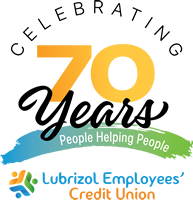ID and Fraud Protection
Protect your financial and personal identity
The number of U.S. data breaches tracked in 2019 totaled 1,473, according to a recent report released by the Identity Theft Resource Center (ITRC). This represents the highest year on record since the ITRC began tracking breaches in 2005.
For anyone that has been a victim of a data breach, the ITRC recommends downloading its free app to manage the various aspects of an individual’s data breach case.
It is important to learn about ID Theft and Fraud to help you prevent and protect your financial and personal identity.
ID theft is when someone uses your personal information to commit fraud or other crimes. Your personal information can include:
- Your name
- Social security number
- Credit card number
- Other personal identifying information
The use of your personal information can have a serious impact on your personal and financial life. Potential damage that can occur includes:
- Damaged credit record
- Loss of job opportunities
- Refused loans for education, housing or cars
- Large amount of time and money to clear your name and regain your identity
Identity theft can happen to anyone. ID thieves do not choose their victims based on age, sex or race. It is very easy to become a victim of identity theft if you:
- Don’t take precautions with your personal information and who you give it to
- Are careless about using your ATM, credit cards and leaving receipts behind
- Throw away financial documents such as bank statements without shredding them first
The following steps are a good start to protecting your identity:
- Don’t give out personal information when asked over the phone or through email
- Protect your personal information (PIN numbers, birth certificates, passports, financial statements, etc.) in a secure place at home
- Shred documents with personal information including credit card offers that come through the mail
- Protect your social security number
- Instead of having checks mailed to your home, pick them up at the credit union
- Mail bills from locked mailbox or Post Office as your check and information can be stolen from an “open” mailbox
- Be on the lookout for those peaking over your shoulder when entering your PIN at ATM's and store checkouts
- Use electronic deposit for paychecks, and other payments
- In a safe place, keep a list of credit/share draft account numbers, expiration dates, and phone numbers to report theft.
When protecting yourself from identity theft, it is important to be alert. By routinely checking your account and billing statements, you can be aware of any suspicious or unusual activity. A few signs of suspicious activity include:
- You notice fraudulent charges on your monthly credit card or financial statements
- You don’t receive your statements as usual or any mail for several days
- You begin receiving bills from unknown companies you did not open accounts with
- Credit collection agencies call regarding debts you do not have
What to Do if You Become a Victim
If you believe you have become a victim of identity theft, it is important to act quickly! A quick reference of the steps to take can be found in the Identity Theft: A Survivor's Guide. Or you can talk to a Certified Financial Counselor at BALANCE for free by calling the hotline at 888.456.2227.



